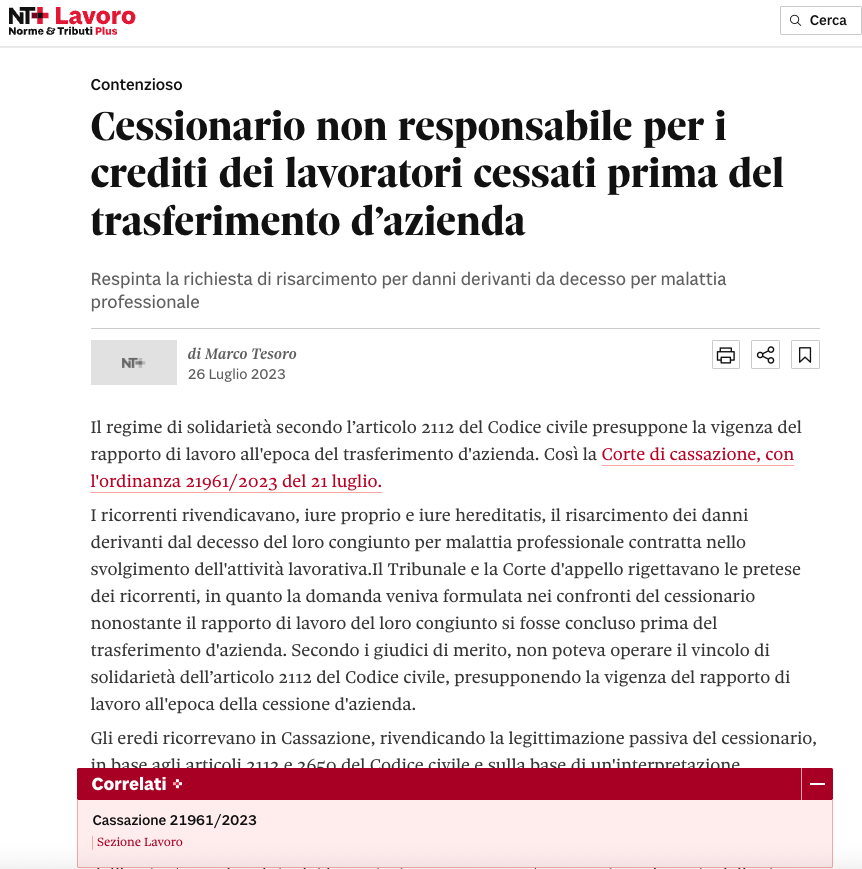Related Posts
Gruppo 24Ore1 July 2024
Part time per fatti concludenti modificabile solo con accordo
Pubblicato su: Il Sole24Ore – Nt Lavoro – 01/07/2024 Leggi qui
Gruppo 24Ore27 May 2024
Ordinary illness protected period inapplicable to disabled employee
Pubblicato su: Il Sole24Ore - Nt Lavoro - 27/05/2024 Leggi qui


